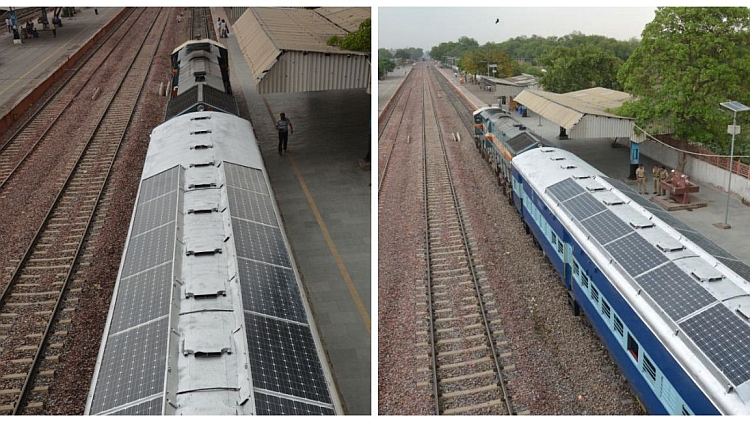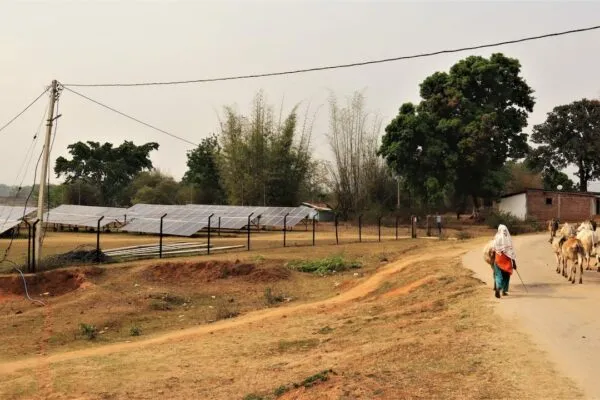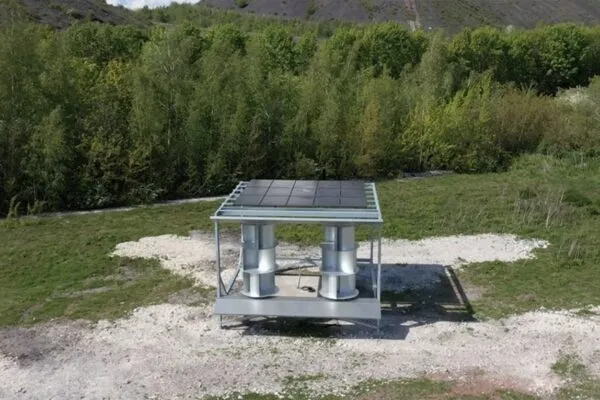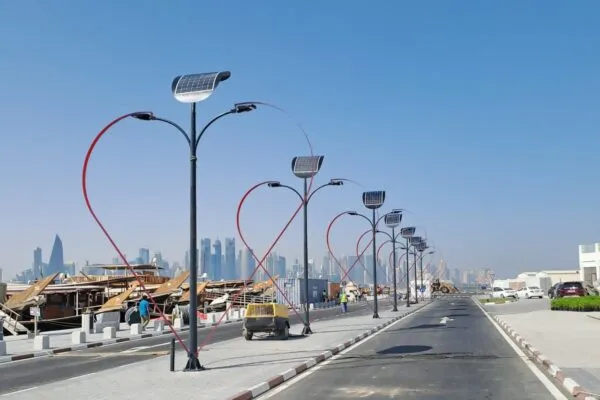After solar-powered coaches, Indian Railways targets solar-thermal plants

After successful trials of solar-powered coaches, now Indian railway is mulling to set up solar thermal plants on land owned by Railways. The step can go a long way in cutting diesel consumption, reducing carbon emissions along-with cost cutting.
India’s Railway Minister Suresh Prabhu revealed this ambitious project to encourage production and use of renewable energy. While speaking at the launch of India Green House Gas (GHG) at India Business and Climate Summit 2015 lead by WRI India, Confederation of India Industry (CII) and The Energy and Resource Institute (TERI), he asserted,
“There is a need to work towards reducing carbon emissions. We cannot continue to depend on the traditional sources of energy like coal if we have to reduce carbon emission. We will have to find innovative ways, use technology and processes that can reduce these emissions.”
To accomplish the dream of being biggest renewable energy generator, Railways outlines 1,000 MW solar plants in the next five years.
Indian Railways is the biggest consumer of electricity, and results in high emissions. In 2013-14, Railways spent over Rs 28,500 crore on fuel only. Energy generation in India makes 42 percent of India’s greenhouse gas emissions and about 76 percent electricity is consumed by industrial and commercial units.
Prabhu also laid emphasis on the need for conducting energy audits to keep accurate measurements of consumption in order to form effect renewable energy strategies.
The project sounds feasible as the Railways posses enough land across the country. The projects will be developed under PPP model. If Indian Railway could accomplish this ambitious goal, it can save huge amount of money annually. Other than solar-energy, Indian Railways are running trials with CNG, biodiesel and natural gas.
Moreover, India’s energy consumption is on rise, and the nation is struggling to control emissions and deteriorating air quality. That makes it necessary to work on renewable energy generation as soon as possible.


